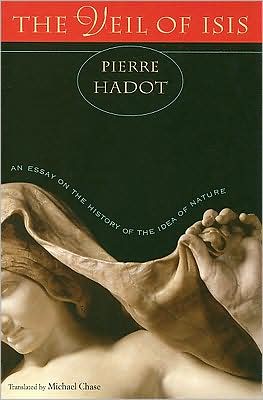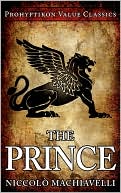The Veil of Isis: An Essay on the History of the Idea of Nature
Nearly twenty-five hundred years ago the Greek thinker Heraclitus supposedly uttered the cryptic words "Phusis kruptesthai philei." How the aphorism, usually translated as "Nature loves to hide," has haunted Western culture ever since is the subject of this engaging study by Pierre Hadot. Taking the allegorical figure of the veiled goddess Isis as a guide, and drawing on the work of both the ancients and later thinkers such as Goethe, Rilke, Wittgenstein, and Heidegger, Hadot traces...
Search in google:
Nearly twenty-five hundred years ago the Greek thinker Heraclitus supposedly uttered the cryptic words "Phusis kruptesthai philei." How the aphorism, usually translated as "Nature loves to hide," has haunted Western culture ever since is the subject of this engaging study by Pierre Hadot. Taking the allegorical figure of the veiled goddess Isis as a guide, and drawing on the work of both the ancients and later thinkers such as Goethe, Rilke, Wittgenstein, and Heidegger, Hadot traces successive interpretations of Heraclitus' words. Over time, Hadot finds, "Nature loves to hide" has meant that all that lives tends to die; that Nature wraps herself in myths; and (for Heidegger) that Being unveils as it veils itself. Meanwhile the pronouncement has been used to explain everything from the opacity of the natural world to our modern angst.From these kaleidoscopic exegeses and usages emerge two contradictory approaches to nature: the Promethean, or experimental-questing, approach, which embraces technology as a means of tearing the veil from Nature and revealing her secrets; and the Orphic, or contemplative-poetic, approach, according to which such a denuding of Nature is a grave trespass. In place of these two attitudes Hadot proposes one suggested by the Romantic vision of Rousseau, Goethe, and Schelling, who saw in the veiled Isis an allegorical expression of the sublime. "Nature is art and art is nature," Hadot writes, inviting us to embrace Isis and all she represents: art makes us intensely aware of how completely we ourselves are not merely surrounded by nature but also part of nature. Robert J. Dostal - Bryn Mawr Classical Review This very learned book displays an enormous scholarship and yet is a fascinating read.
Prologue at Ephesus : an enigmatic saying11Heraclitus' aphorism : "what is born tends to disappear"72From Phusis to nature173Secrets of the gods and secrets of nature294Heraclitus' aphorism and allegorical exegesis395"Nature loves to wrap herself up" : mythical forms and corporeal forms506Calypso, or "imagination with the flowing veil"587The genius of paganism678The "gods of Greece" : pagan myths in a Christian world769Prometheus and Orpheus9110Mechanics and magic from antiquity to the Renaissance10111Experimental science and the mechanization of nature11812Criticism of the Promethean attitude13813Physics as a conjectural science15514Truth as the daughter of time16615The study of nature as a spiritual exercise18216Nature's behavior : thrifty, joyful, or spendthrift?19017The poetic model20118Aesthetic perception and the genesis of forms21119Artemis and Isis23320Isis has no veils24721The sacred shudder26222Nature as sphinx28423From the secret of nature to the mystery of being309
\ British Journal for the History of SciencePierre Hadot, professor emeritus of the Collège de France, has written a remarkably insightful book on the theme of secrets of nature and their significance for the history of science and ideas about nature. First published in 2004 by Editions Gallimard, it is now available in English through Michael Chase’s adept and eloquent translation...Of particular interest to historians of science will be Hadot’s conception of the Promethean attitude and the mechanization of nature...The Veil of Isis is a rewarding voyage through a multitude of texts, illustrations and historical figures that brings a set of complex and often contradictory ideas into a clear and compelling argument.\ — Carolyn Merchant\ \ \ \ \ \ Bryn Mawr Classical ReviewThis very learned book displays an enormous scholarship and yet is a fascinating read.\ — Robert J. Dostal\ \ \ \ London Review of Books[Hadot] is an extraordinary guide to the history of the idea of nature from Heraclitus to now. You will find yourself in the company of a wise Greek, a pagan, a philosopher who believes that a role of philosophy is to teach us how to live.\ — Ian Hacking\ \ \ \ \ \ Providence JournalAgain and again sparks fly as Hadot reveals the enduring fascination of nature's mystery.\ — Tom D'Evelyn\ \ \ \ \ \ Library JournalHadot (emeritus, College de France; What Is Ancient Philosophy?), a distinguished historian of Greek philosophy, traces from early Greek times to the 20th century the notion that nature is mysterious. Greek philosopher Heraclitus once said, "Nature loves to hide"; for those in what Hadot calls the Promethean tradition, this saying expressed a challenge to be overcome. English statesman, essayist, and philosopher Francis Bacon, for one, proposed that scientists might learn nature's secrets through experimentation and use their discoveries to benefit humanity. But not everyone accepted this view. Swiss philosopher Jean-Jacques Rousseau and German scientist and man of letters Johann Wolfgang von Goethe feared that uncovering too many of nature's secrets would be disastrous. Hadot calls this the Orphic attitude and carefully analyzes Goethe's efforts "to discover the Form-types of Nature." He also discerns a third attitude toward nature, based on the symbol of the veiled goddess Isis, which "no longer signifies [uncovering] the secrets of nature but rather the mystery of existence." Comparing favorably with Carolyn Merchant's The Death of Nature, this book is highly recommended for all collections.-David Gordon, Bowling Green State Univ., OH Copyright 2006 Reed Business Information.\ \








